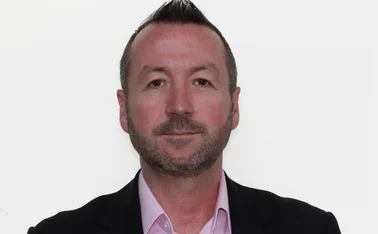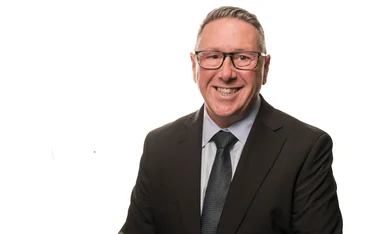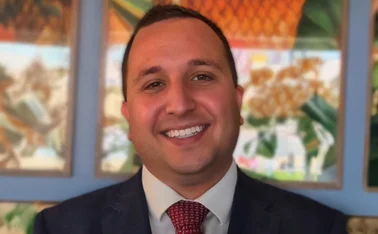
Head Lines: Living with and working with mental illness

Marmalade CEO Crispin Moger shares how overcoming mental health issues has helped him grow the business

If you were asked to describe the qualities and traits of a CEO, words like good leadership, vision or assertiveness may come to mind. I doubt very much that depression or anxiety would feature very high on the list. It can be easy to assume that your peers don’t suffer from poor mental health, particularly those that appear confident and successful. That’s why I’m keen to share my story.
I was first diagnosed with depression in 1992, shortly after my 17th birthday and just over a year before I took my A-levels. At the time, it seemed like it came on very quickly, but when I look back I think the signs were always there. It hit me quite hard and having no idea how to deal with it, I really struggled during my A-levels, ending up nowhere near where I expected to be.
Apart from one or two friends (and close family) I told no one, mainly because I didn’t want to be seen as the crazy kid. I knew of no other person who had a mental illness, but had heard a few horror stories (probably exaggerated) about people who had. In short, I was terrified that I was going to lose my mind.
Invisible illness
I tried therapy, hypnotherapy and the doctor dished out tablets in the end. I just wanted the feelings and negative thoughts to stop. I remember wishing I had some physical illness, because at least I would have known what was wrong with me and it would have been more obvious how to treat it, as well as being more visible to others.
In my twenties after returning to university, I tried to come off the medication. It was around this time, after trying to come off tablets, that the diagnosis became a bit more accurate and I found out that I had OCD. Slowly things started to make sense, especially how I reacted to things and why I experienced bouts of anxiety.
As I worked through my degree, and then began working, I developed the skills and coping techniques to manage my mental health, And, whilst I don’t exactly embrace it, I can cope with it more proactively.
I have always been active and firmly believe that exercise and being fit really gives me the best chance to keep on top of things. I try and do something every day if I can, even if it is just walking the dog.
It would be great to not suffer from periods of poor mental health but, in a weird way, I think it has helped me a lot in what I do.
It would be great to not suffer from periods of poor mental health but, in a weird way, I think it has helped me a lot in what I do
The right way
I am obsessed with doing business in the right way – a philosophy that runs right through Marmalade. It is incredibly important to me to make life easier for both customers and my employees. It has enabled me to be more empathetic and allows me to see situations from multiple perspectives. It helps with our goals, as we are trying to create a win-win for both consumers and insurers.
I’ve shared my story hoping for two things really. Firstly, to encourage people to get talking more about their wellbeing and to keep breaking down the stigma around mental illness by showing how it can affect anyone, even those you least expect. Battling poor mental health can be lonely and you can feel there’s no way out. Sharing can often be that first step to wellness – and listening without judgement to a friend or colleague could really make the difference.
Secondly, to inspire anyone suffering that there is support and help out there and that, by learning how to look after and manage your mental wellbeing, it makes you stronger and it won’t hold you back. You can be successful – it’s even possible to lead teams and create successful businesses.

To get involved in Insurance Age’s Head Lines mental health campaign contact sian.barton@infopro-digital.com
Only users who have a paid subscription or are part of a corporate subscription are able to print or copy content.
To access these options, along with all other subscription benefits, please contact info@insuranceage.co.uk or view our subscription options here: https://subscriptions.insuranceage.co.uk/subscribe
You are currently unable to print this content. Please contact info@insuranceage.co.uk to find out more.
You are currently unable to copy this content. Please contact info@insuranceage.co.uk to find out more.
Copyright Infopro Digital Limited. All rights reserved.
As outlined in our terms and conditions, https://www.infopro-digital.com/terms-and-conditions/subscriptions/ (point 2.4), printing is limited to a single copy.
If you would like to purchase additional rights please email info@insuranceage.co.uk
Copyright Infopro Digital Limited. All rights reserved.
You may share this content using our article tools. As outlined in our terms and conditions, https://www.infopro-digital.com/terms-and-conditions/subscriptions/ (clause 2.4), an Authorised User may only make one copy of the materials for their own personal use. You must also comply with the restrictions in clause 2.5.
If you would like to purchase additional rights please email info@insuranceage.co.uk







